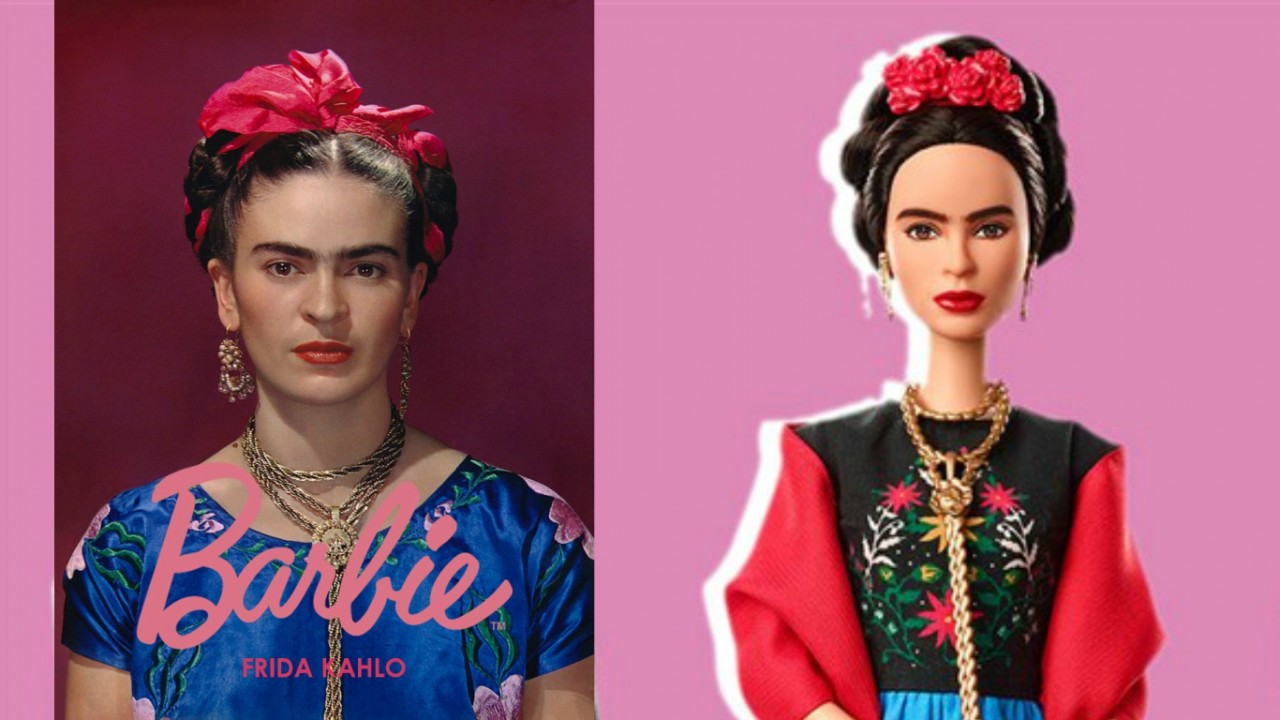To celebrate International Women’s Day, Mattel, the manufacturers of Barbie, released a series of collectables to celebrate the inspirational women Frida Kahlo, Amelia Earhart and Katherine Johnson in the form of Barbie dolls. Although it is a step in the right direction for such a large company to appreciate and honour inspirational women, the concept of a Frida Kahlo Barbie doll seems to be completely ironic and utterly absurd.
The sold-out doll lacks an accurate likeness to the 20th-century Mexican painter. Not only are her skin and eyes lighter but her unibrow is noticeably inaccurate, her facial hair is absent, her body has been downsized and the doll completely disregards Kahlo’s disability by presenting her as able-bodied. The blatant misrepresentation of her appearance goes against the beauty ideals Kahlo so regularly challenged in her paintings. Kahlo was her own muse and throughout her lifetime produced a number of raw self-portraits depicting explicit personal experiences, ranging from disability to her tumultuous relationship with the famous painter, Diego Rivera. The erasure of Kahlo’s distinctive unibrow and facial hair is an insult to a woman who rejoiced in her own appearance and, contrary to much of today’s mantras and Hollywood fallacies, her paintings depict her in a real and undisguised fashion which nobody should make apologies for.
Salma Hayek, the Oscar-nominated actress who played Frida Kahlo in the 2002 film Kahlo also condemns the doll and took to Instagram to say “#fridakahlo never tried to be or look like anyone else. She celebrated her uniqueness. How could they turn her into a Barbie”. The notion of designing a doll to celebrate a feminist icon in order to inspire women and young girls while inaccurately presenting her famous features seems to be entirely contradictory. Mattel has inevitably erased Kahlo’s defining features in an attempt to adapt her to fit into the quintessential Barbie mould. This mould is ultimately antithetical to the purpose of the “inspiring women” series as it is questionable how they can honour Kahlo while erasing such a large part of her identity.
Not only this, but it has been reported by the Kahlo estate that Mattel “does not have the proper authorisation to use the image of Frida Kahlo”. Kahlo’s family have also publicly criticised the company for misrepresenting such an iconic and recognisable figure while simultaneously disregarding the values which she fought for.
Ironically, Kahlo was a communist. Potentially the worst element of the creation of a Frida Kahlo Barbie is that Barbie is an archetypal symbol of capitalism. The concept of a huge corporation profiting off of an inaccurate portrayal of a Marxist figure is so bewildering it is almost unbelievable. Kahlo’s 1954 painting ‘Marxism Will Give Health to the Ill’ is a clear condemnation of capitalism and the United States with an obvious adoration of Karl Marx and communism. Kahlo was communist to death as she was laid to rest in 1954 under a communist flag. Her deep-rooted anti-capitalist ideals would almost certainly mean that she would be disgusted at the concept of her being commodified in this way and it is disrespectful to her legacy to do so.
As important as it is for Barbie to have an Inspiring Women Series to showcase historical figures as role models for all women and young girls, it is ultimately inappropriate to depict the artist so inaccurately. Frida Kahlo was indeed a woman of substance, ability and skill and it is this alone that constitutes the inspiration in we who follow her. It cannot be right, especially in her case and, given her clear contempt for such matters, to alter her appearance for the sake of commercial niceties and an inappropriate obsession with today’s idea of beauty. Additionally, considering Barbies are antithetical to everything she believed in and supported, perhaps creating Barbies of other inspirational women who approve would be a better idea.
Charlotte Loughlin
(Image courtesy of Lipstiq.com)

